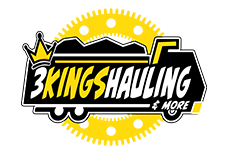
Construction Debris Removal: Safe and Efficient Cleanup Solutions
Construction projects generate a significant amount of debris, from broken concrete and lumber scraps to metal and drywall. Without efficient removal, this debris can disrupt workflow, cause safety hazards, and increase cleanup costs. Construction debris removal services help keep job sites organized and safe, allowing projects to progress smoothly. In this guide, we’ll explore the benefits of professional debris removal, types of debris handled, and how to choose the right service provider for your needs.
What is Construction Debris Removal?
Construction debris removal is the process of clearing unwanted materials and waste from construction sites. Professional removal services manage the collection, transportation, and disposal of debris, ensuring an organized and hazard-free work environment.
- Scheduling: Service providers work with contractors to plan removal schedules that don’t disrupt the workflow.
- On-Site Collection: Debris is loaded directly from the job site, minimizing downtime for workers.
- Eco-Friendly Disposal: Many companies focus on recycling and reusing materials, such as concrete, metals, and wood, keeping waste out of landfills.
Benefits of Professional Debris Removal for Construction Sites
Hiring a professional debris removal service offers several advantages for contractors and builders:
- Improves Site Safety: Regular removal of debris reduces trip hazards and keeps the site safe for workers.
- Increases Efficiency: With professionals handling disposal, workers can focus on the construction project.
- Eco-Friendly Practices: Many services recycle or repurpose materials, reducing landfill impact.
- Saves Time and Money: Professionals know how to handle debris efficiently, reducing labor and disposal costs.
- Maintains Compliance: Licensed debris removal services ensure waste is disposed of according to local regulations.
Types of Debris Commonly Removed
Construction sites generate various types of debris, each requiring specific disposal methods. Here’s an overview of common types of construction waste and how they’re typically handled:
| Debris Type | Description | Disposal Method |
|---|---|---|
| Concrete & Asphalt | Broken concrete, asphalt chunks | Recycling into new aggregate |
| Wood | Lumber, pallets, plywood | Reused or ground into mulch |
| Metal | Steel, aluminum, copper scraps | Recycled for new metal products |
| Drywall | Broken or unused drywall panels | Reused or recycled where accepted |
| Glass | Window glass, mirrors | Recycled when unbroken |
| General Waste | Plastic, packaging, insulation | Landfill or sorted for recycling |
- Concrete & Asphalt: Often recycled into new aggregate, these materials are broken down for use in new construction projects.
- Wood: Lumber and plywood are either reused or ground into mulch, reducing the need for new lumber.
- Metal: Scrap metal is melted and reformed into new products, making it one of the most recycled materials.
- Drywall: Drywall is sometimes recycled or repurposed in smaller construction projects.
- Glass: Broken or unbroken, construction glass is recycled wherever facilities are available.
- General Waste: Plastics, insulation, and packaging waste are sorted for recycling or sent to landfill if non-recyclable.
How to Choose a Reliable Construction Debris Removal Service
Finding the right construction debris removal company ensures efficient disposal and keeps the site organized. Here’s a checklist for choosing a service provider:
- Check for Transparent Pricing: A reputable company provides clear, upfront pricing based on the volume and type of debris.
- Confirm Licensing and Insurance: Licensed and insured companies ensure safe and compliant waste removal.
- Evaluate Eco-Friendly Options: Look for providers that recycle and reuse materials whenever possible.
- Read Customer Reviews: Online reviews on platforms like Google or Yelp reveal service reliability and customer satisfaction.
- Assess Flexibility and Availability: Choose a provider that offers flexible scheduling to accommodate your project’s timeline.
Frequently Asked Questions (FAQ)
Q: What items do construction debris removal services typically accept?
Most services accept concrete, wood, metal, drywall, glass, and general waste. However, they may not handle hazardous materials like chemicals or asbestos.
Q: How much does construction debris removal cost?
Pricing varies based on factors such as debris volume, type, and location, but it typically ranges from $300 to $1,000 per load. It’s best to request a quote for an accurate estimate.
Q: Do construction debris removal companies recycle materials?
Yes, many companies prioritize recycling and reuse, especially for materials like concrete, metal, and wood.
Q: Can I schedule debris removal at specific times to avoid work disruption?
Most companies offer flexible scheduling options, including after-hours service, to avoid disrupting construction activities.
Q: Is construction debris removal the same as demolition clean-up?
While both involve debris removal, construction debris removal focuses on routine site waste, whereas demolition clean-up involves removing all materials from a teardown site.
